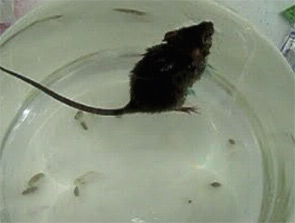Have you recently asked a patient about his or her ability to smell? Can you recall a patient complaining about losing his or her sense of smell? Have you ever used this complaint to determine the patient’s diagnosis?
Surprisingly, an impairment in smell may be an important manifestation in systemic lupus erythematosus (SLE). Indeed, the sense of smell may be a clue to what is going wrong in the patient’s nervous system, pointing to a new line of brain research to understand pathogenesis. In this article, I will describe how I became interested in smell and why I think the nose is another organ to consider in understanding this complex multisystem disease.
SLE is a disease of immune disturbance characterized by over 156 different autoantibodies.1 In antiphospholipid syndrome (APS), serological analysis can demonstrate the presence of more than 40 different autoantibodies in the blood.2 Furthermore, in reviewing the literature, my colleagues and I have found that central nervous system (CNS) involvement in SLE and APS is associated with close to 20 different specific autoantibodies.3 One that stands out prominently is the anti–P-ribosomal (anti-P-R) antibody. My interest in the sense of smell arose incidentally when we analyzed the potential pathogenic role of anti-P-R autoantibodies in CNS involvement of SLE.4-6
For years, the association of anti-P-R antibodies with CNS involvement of SLE has been reported in the literature. The role of anti-P-R antibodies in this manifestation was highlighted by the remarkable report by Bonfa and colleagues.7 They demonstrated a clear correlation between highly elevated titers of anti-P-R antibodies and psychotic events in SLE patients. This association strongly suggested that autoantibodies may cause psychiatric manifestations. The role of immunological factors in CNS manifestations in SLE gained further support from the observations that, when the autoimmune phenomena of SLE are treated with drugs such as corticosteroids or other immunosuppressives, the psychiatric findings and symptoms (e.g., cognitive impairment, major depression or psychosis, etc.) can subside. While speculative, these findings may relate to the broader issue of whether “idiopathic” psychiatric diseases such as schizophrenia and manic-depressive states may also have, in part, an autoimmune origin.8,9


Early Research in Mice
My colleagues and I collaborated with Morris Reichlin, MD, professor of medicine at the University of Oklahoma Health Sciences Center in Oklahoma City, and his colleagues to test in an in vivo model the effects of anti-P-R antibodies on brain function. We injected anti-P-R antibodies purified by affinity chromatography from the serum of a depressive SLE patient directly into the ventricles of the brains of naive mice. We wanted to avoid the blood–brain barrier, an obstacle that could also be overcome by injecting the autoantibody intravenously either together with epinephrine, imitating a state of stress, or with lipopolysaccharide, mimicking a state of infection.10